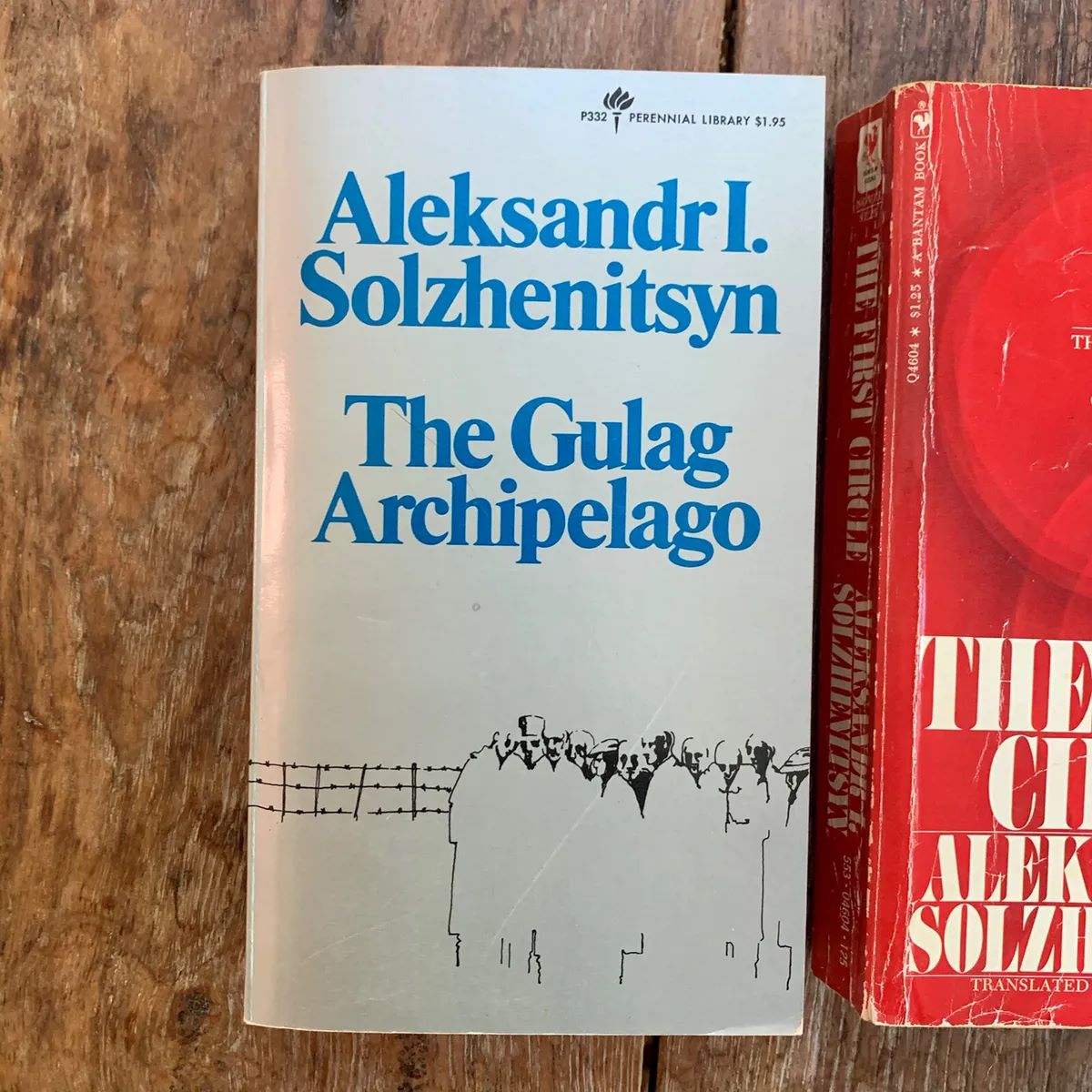
Aleksandr Solzhenitsyn’s masterpiece, “The Gulag Archipelago,” is a gripping and harrowing account of the Soviet Union’s labor camp system. As one of the most important works of literature in the 20th century, it sheds light on the brutal realities faced by millions of prisoners during Joseph Stalin’s regime.
In this article, we will delve into 11 captivating facts about “The Gulag Archipelago” that make it a must-read for anyone interested in history, politics, or human resilience. From Solzhenitsyn’s own experiences as a political prisoner to the impact of his writing on the world, these facts will provide a fascinating glimpse into this iconic literary work.
Key Takeaways:
- The Gulag Archipelago, written by Aleksandr Solzhenitsyn, exposes the horrors of Soviet labor camps and inspires movements for human rights and freedom worldwide.
- Based on Solzhenitsyn’s personal experiences, The Gulag Archipelago serves as a chilling reminder of the dangers of totalitarianism and the importance of upholding individual freedoms.
The Gulag Archipelago is a groundbreaking literary work.
Written by renowned Russian author Aleksandr Solzhenitsyn, The Gulag Archipelago is an epic non-fiction book that sheds light on the Soviet Union’s vast network of forced labor camps. It provides a chilling account of the atrocities and injustices that occurred during the Stalin era and serves as a powerful testament to the resilience of the human spirit.
The book was smuggled out of the Soviet Union for publication.
In a harrowing act of defiance, Solzhenitsyn risked his life by secretly writing The Gulag Archipelago while imprisoned in the Soviet labor camps. The manuscript was smuggled out page by page, and upon its publication in 1973, it became an international sensation, exposing the horrors of the Soviet regime to the world.
The Gulag Archipelago is divided into three volumes.
The book is divided into three interconnected volumes, each delving into different aspects of the Gulag system. Volume 1 explores the origins and development of the camps, Volume 2 examines the daily life and struggles of the prisoners, and Volume 3 focuses on the political and ideological implications of the Gulag system.
It has been translated into multiple languages.
The profound impact of The Gulag Archipelago transcended borders and led to its translation into numerous languages. This allowed people worldwide to gain a deeper understanding of the Soviet Union’s human rights abuses and the resilience of those who suffered under the oppressive regime.
The Gulag Archipelago was banned in the Soviet Union.
Unsurprisingly, the Soviet authorities did not take kindly to Solzhenitsyn’s damning portrayal of their regime. The book was immediately banned in the Soviet Union, and possession or distribution of it could lead to imprisonment or worse for those caught with a copy.
Aleksandr Solzhenitsyn was awarded the Nobel Prize in Literature.
In recognition of his courage in exposing the horrors of the Gulag system and his literary achievements as a whole, Aleksandr Solzhenitsyn was awarded the Nobel Prize in Literature in This further solidified his status as a literary icon and a staunch advocate for truth and justice.
The Gulag Archipelago made a lasting impact on the world.
The publication of The Gulag Archipelago had far-reaching consequences, not only in terms of exposing the Soviet Union’s crimes but also in inspiring movements for human rights and freedom around the globe. The book’s harrowing account of the human spirit’s endurance in the face of evil continues to resonate with readers to this day.
It remains a powerful reminder of the dangers of totalitarianism.
The Gulag Archipelago serves as a chilling reminder of the dangers of unchecked power and the devastating impact of totalitarian regimes. It stands as a stark warning of the importance of upholding individual freedoms, protecting human rights, and preventing the abuse of authority.
Solzhenitsyn’s work was based on his personal experiences in the Gulag.
Having spent eight years as a political prisoner in the Soviet labor camps, Solzhenitsyn wrote The Gulag Archipelago drawing from his firsthand experiences. His unflinching honesty and attention to detail provide an intimate and powerful insight into the brutal realities of life within the Gulag system.
The Gulag Archipelago has been recognized as a literary masterpiece.
Critics and scholars alike have hailed The Gulag Archipelago as a literary masterpiece. Its powerful prose, vivid descriptions, and meticulous attention to detail have secured its place among the most significant works of the 20th century, cementing Solzhenitsyn’s reputation as a literary giant.
The Gulag Archipelago helped bring awareness to Soviet human rights abuses.
By exposing the atrocities committed within the Gulag system, The Gulag Archipelago played a crucial role in bringing international attention to the human rights abuses perpetrated by the Soviet Union. It played a significant part in dismantling the facade of the Soviet regime and fostering global condemnation of its actions.
Conclusion
In conclusion, The Gulag Archipelago by Aleksandr Solzhenitsyn is a profound and impactful work that sheds light on the dark reality of the Soviet Union’s forced labor camp system. Solzhenitsyn’s meticulous research, personal experiences, and powerful storytelling make this book a must-read for anyone interested in understanding the depths of human suffering and resilience.
The Gulag Archipelago not only exposes the horrors of the Gulag system but also serves as a reminder of the importance of preserving freedom, justice, and human rights. Solzhenitsyn’s unwavering dedication to truth and his courage in the face of immense adversity make this book a testament to the power of literature itself.
By uncovering the hidden truths of the Gulag, Solzhenitsyn’s work has played a significant role in shaping historical discourse and sparking conversations about totalitarianism, censorship, and the inherent value of individual liberty. It serves as a chilling reminder of the dangers of unchecked power and an inspiration for those who strive for a more just and compassionate world.
FAQs
1. Who is Aleksandr Solzhenitsyn?
Aleksandr Solzhenitsyn was a Russian novelist, historian, and critic. He is best known for his works depicting the Soviet Union’s totalitarian regime and the hardships faced by its citizens, particularly in his book The Gulag Archipelago.
2. What is The Gulag Archipelago about?
The Gulag Archipelago is a non-fiction book that examines the Soviet Union’s forced labor camp system. It provides a detailed account of the gulag’s origins, its operation, and the experiences of those imprisoned within it. The book also delves into the political and social climate of the time, offering critical insights into the mechanisms of oppression and the resilience of the human spirit.
3. Why is The Gulag Archipelago significant?
The Gulag Archipelago is significant because it reveals the extent of human suffering endured under the Soviet regime. It exposes the human rights abuses, political oppression, and the pervasive fear that characterized life during that era. The book serves as a stark reminder of the consequences of unchecked power and stands as a testament to the resilience of the human spirit.
4. How does The Gulag Archipelago impact our understanding of history?
The Gulag Archipelago challenges the official narrative of the Soviet Union and provides an alternative perspective on the regime’s practices. By shedding light on the atrocities committed within the gulags, it has reshaped our understanding of the era and forced a reassessment of the Soviet regime’s policies. The book has played a crucial role in bringing attention to the abuses of power and the importance of preserving individual freedom.
5. Is The Gulag Archipelago solely a historical account?
Although The Gulag Archipelago is a historical account, it goes beyond mere documentation. Solzhenitsyn’s powerful storytelling and personal experiences make the book a gripping and emotionally charged read. It offers profound insights into the human condition, the nature of oppression, and the strength of the human spirit in the face of unimaginable adversity.
If you're fascinated by the power of literature to expose harsh realities and inspire change, don't miss our exploration of George Orwell's allegorical novella "Animal Farm," which serves as a scathing critique of totalitarianism. For a glimpse into the world of geishas, check out our article on "Memoirs of a Geisha," a captivating memoir that offers a rare look behind the curtain of this ancient Japanese tradition. And if you can't get enough of Aleksandr Solzhenitsyn's powerful prose, be sure to read our piece on his seminal work "One Day in the Life of Ivan Denisovich," which offers a harrowing portrait of life in a Soviet labor camp.
Was this page helpful?
Our commitment to delivering trustworthy and engaging content is at the heart of what we do. Each fact on our site is contributed by real users like you, bringing a wealth of diverse insights and information. To ensure the highest standards of accuracy and reliability, our dedicated editors meticulously review each submission. This process guarantees that the facts we share are not only fascinating but also credible. Trust in our commitment to quality and authenticity as you explore and learn with us.


